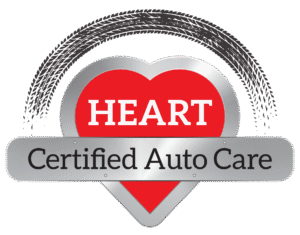Cars are our devoted servants. Give them proper service and repairs, and you can be confident that they will last for many hours on the road with minimal problems. But not every car problem can be resolved during routine service checks, and you should be on the lookout for anything unusual with your vehicle because it could be a sign of a larger problem. Noise is a common symptom, but being aware of unusual odors can assist you in detecting specific problems early on.
Sharing with you some of the most common car odors that can be detected, as well as what to look out for if you encounter that odor.
- Charred Rubber
The odor of burnt rubber indicates only one thing: the rubber has come into contact with hot material and is burning. When it happens, try to inspect all of your car’s rubber parts. The burning could be caused by friction between it and a moving metal part in the majority of cases. It could be caused by a slipping belt or a leaking hose from the cooling and/or power steering systems.
- Hot Oil
When you drive, the oil heats up, but it is contained within its system, so you should not notice a burning odor. If you detect this odor, it indicates that there is a leak in the oil circulation system, and the oil may be leaking onto a hot part, such as the exhaust system. The next step is to make an appointment to bring your vehicle in for an inspection and to have the problem fixed. Low oil levels can damage your vehicle’s engine if left untreated.
- Fuel
When you smell gasoline while driving, it means there is a leak in one of the pipes that transport it. The gas leak could be in the fuel injector or in the fuel tank. If you have a car/vehicle from the 1970s or earlier, a constant fuel odor after you turn off the engine is normal; if that odor is strong, get it checked out right away. Make an appointment to bring it to our auto repair shop.
- Burning Carpet
This odor indicates that you may have a problem with your brake pads or that your rotors are overheating. Keep in mind that your car’s brakes are a critical component, and any problems with them should be addressed as soon as possible to avoid any hazards. If the odor persists and you have not been driving in stop-and-go traffic, we strongly advise you to have your brakes inspected as soon as possible.
- Syrup
This sweet odor is caused by engine coolant leakage. This is bad for your engine because the coolant relies on the enclosed system to keep it cool. A leak in the coolant can cause the engine to overheat. To avoid getting burned, open the radiator with caution and do not do so when it is too hot.
This can be a major problem and cause your car to overheat.
- Rotten Eggs
This odor indicates that your catalytic converter is malfunctioning. The converter is intended to convert the gases emitted by your engine into a form that can be released, and smelling this indicates that it is not working properly. In some cases, it may be an indication that the engine has a problem that is overloading the catalytic converter.
Don’t be concerned about what they might indicate; instead, bring it into HEART Auto Care and rest assured that our mechanics will diagnose and repair any problem you may be experiencing with your car.





